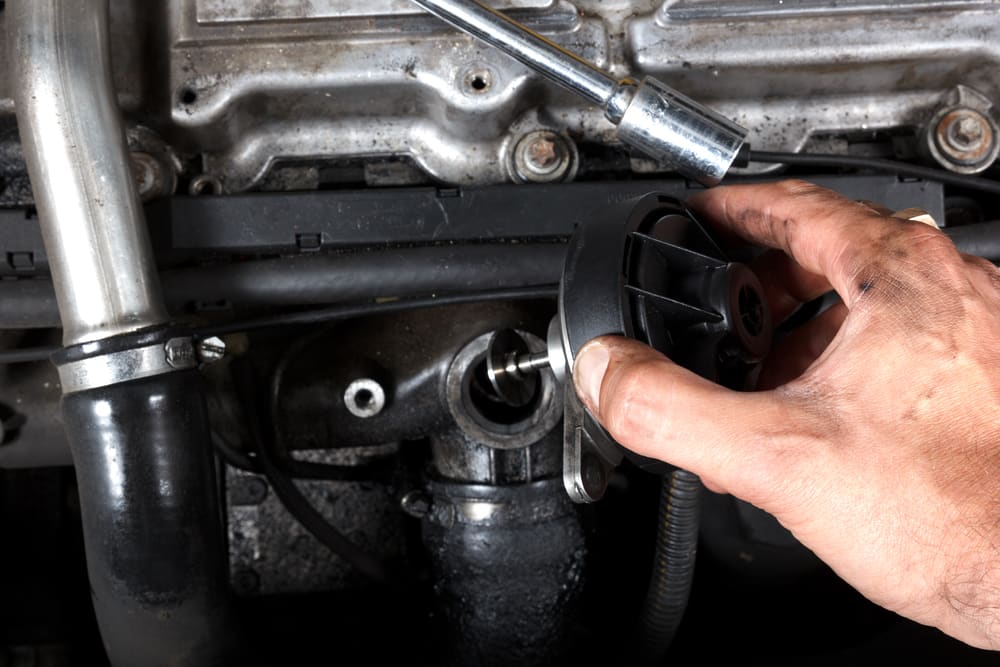

Many modern vehicles are equipped with an EGR system to help lower the vehicle’s emissions. The EGR system works by recirculating exhaust gases back into the engine in order to lower cylinder temperatures and NOx emissions. The EGR system is made up of several components that work together to accomplish this task. One of these components commonly found on many EGR systems is the EGR pressure feedback sensor.
The EGR pressure feedback sensor, also known as the delta pressure feedback sensor, is a sensor that detects the pressure changes in the EGR system. It works together with the EGR valve to regulate the pressure of the EGR system. When the EGR pressure feedback sensor detects that the pressure is low, it will open up the EGR valve to increase flow, and just the opposite will close the valve if it detects that pressure is too high.
As the pressure reading detected by the EGR pressure sensor is one of the most important parameters used by the EGR system, if it has any issues it can cause problems with the EGR system, which can lead to engine performance issues, and even increased emissions. Usually a problem with the EGR pressure feedback sensor will produce a few symptoms that can alert the driver of a potential problem that should be serviced.
1. Engine performance issues
One of the first symptoms of a problem with the EGR pressure sensor is engine performance issues. If the EGR pressure sensor sends any false reading to the computer it can cause the EGR system to malfunction. A malfunctioning EGR system can lead to engine performance issues such as rough idle, engine hesitation, and a decrease in overall power and fuel efficiency.
2. Failed emissions test
Another symptom of a potential problem with the EGR pressure sensor is a failed emissions test. If the EGR pressure sensor has any issues which affect the functionality of the EGR system it can cause the vehicle to fail an emissions test. This is particularly important in states that require the vehicle to pass an emissions test in order to register the vehicle.
3. Check Engine Light comes on
Another symptom of a problem with the EGR pressure sensor is a Check Engine Light. If the computer detects any problem with the EGR pressure sensor signal or circuit, it will illuminate the Check Engine Light in order to notify the driver of an issue. A Check Engine Light can be set off by a wide variety of issues so having the computer scanned for trouble codes is highly recommended.
The EGR pressure sensor is one of the most critical components of the EGR system for vehicles that are equipped with them. The signal it provides is one of the main parameters that the EGR system uses to function, and any problems with it can affect the overall functionality of the system. For this reason, if you suspect that your EGR pressure sensor may be having an issue, have the vehicle inspected by a professional technician, such as one from YourMechanic, to determine if the sensor should be replaced.



